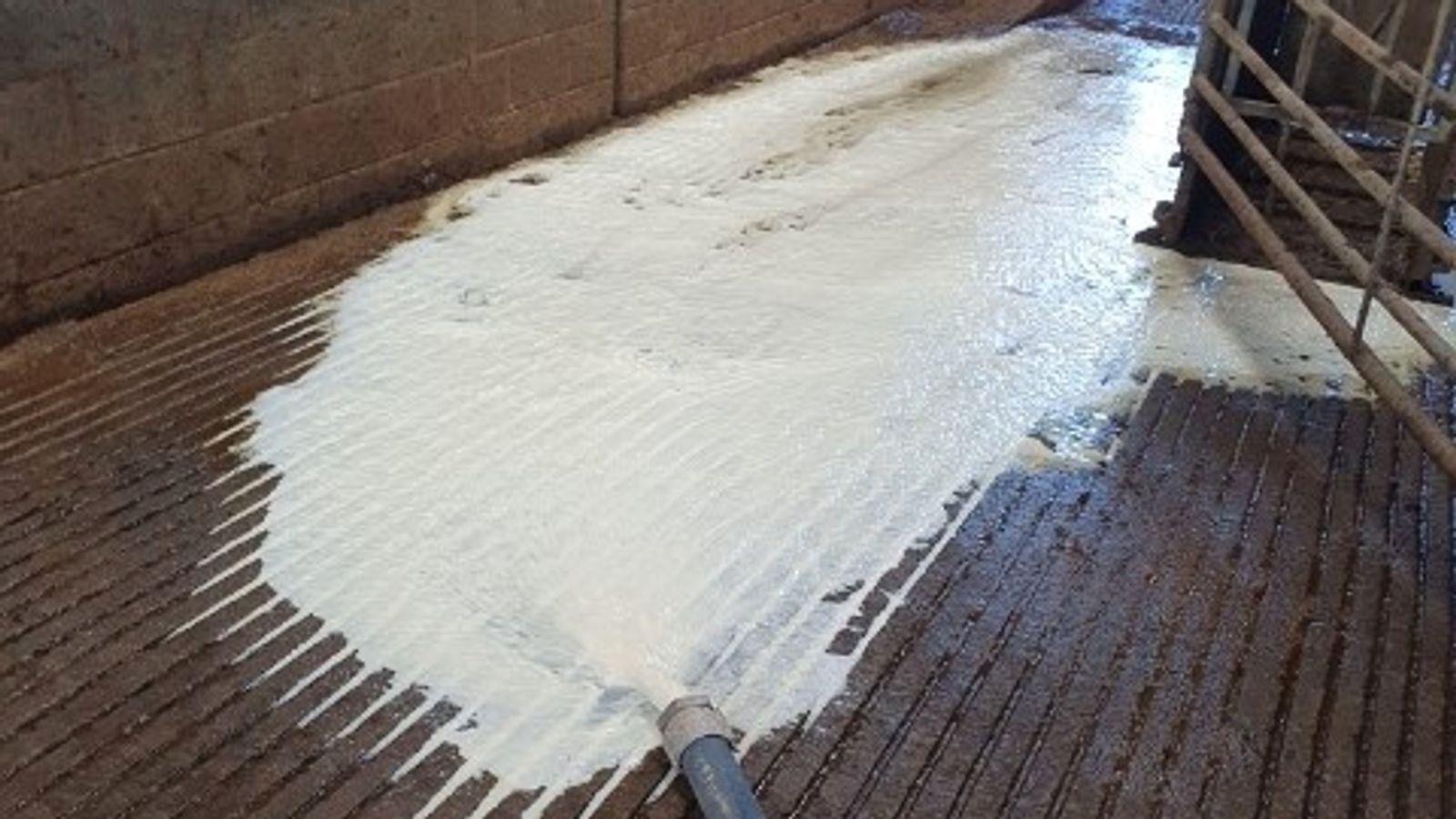British dairy farmers say they have poured tens of thousands of litres of milk away due to the HGV driver shortage – and fear it is just the “tip of the iceberg” ahead of winter.
One fourth-generation dairy farmer in central England has been forced to dump 40,000 litres of milk over the past two months after no drivers turned up to collect it due to the HGV driver shortage.
“It’s cutting, it’s emotionally draining when you’re producing milk and at the end of the day you have to pull the plug and it has to go,” said the farmer, who asked not to be named due to concerns about the impact of negative publicity on contractors.
The farmer said he has had to destroy four milk loads since the beginning of August and previously had only had to do it two or three times in 45 years due to bad weather.
Other farmers have reported turning to “distress milk services”, which are small companies set up to buy milk at lower prices and transport it to other outlets to stop it from being dumped.
A massive 15.3 billion litres of milk was produced in the UK last year so the effect of supplies having to be poured down the drain or sold for less will not yet be seen in shops.
But, it shows the extent of the labour problems across the UK and follows in the footsteps of the fuel crisis and hundreds of healthy pigs being slaughtered because there are not enough abattoir workers.
Government to relax regulations on research into gene-edited crops
Badger cull: Thousands to be put down in seven new areas across England as government battles bovine TB
Boris Johnson says he is not keen on placing ‘extra taxes on hard-working people’ amid calls for new salt and sugar tax
And as many dairy farmers do not make a profit on their milk, any small knocks are felt very quickly, Peter Alvis, chairman of the Royal Association of British Dairy Farmers said.
“I don’t think things with global supply chains have settled down again after the pandemic, and the shortage of HGV drivers is having quite a large impact,” he said.
Please use Chrome browser for a more accessible video player
Mr Alvis said milk wastage was so far limited to a few incidents, but precise data is difficult to obtain.
Rob Hunthatch, 38, runs a distress milk service rescuing milk for half its normal price and turning it into curd, which is the first stage in cheesemaking.
He said he typically only has two hours to pick up the milk after a farmer calls him before it is dumped.
In September, he saved 160,000 litres of milk in Cheshire alone – a 100,000 litre increase from the previous month – but was unable to save a further 80,000 litres.
“This is only the tip of the iceberg,” Mr Huntbatch said.
“I think it will get worse – in wintertime if there’s snow, drivers get slowed down, and it’s going to make even more of an impact.”
Milk wastage is not the only current problem facing dairy farmers, with prices for fertiliser used to grow feed rocketing, as well as natural gas and electricity.
Henry Bloxham, a Staffordshire dairy farmer, said his fertiliser prices have risen by 150% in three weeks and fuel increased by 10p a litre in the last week.






















